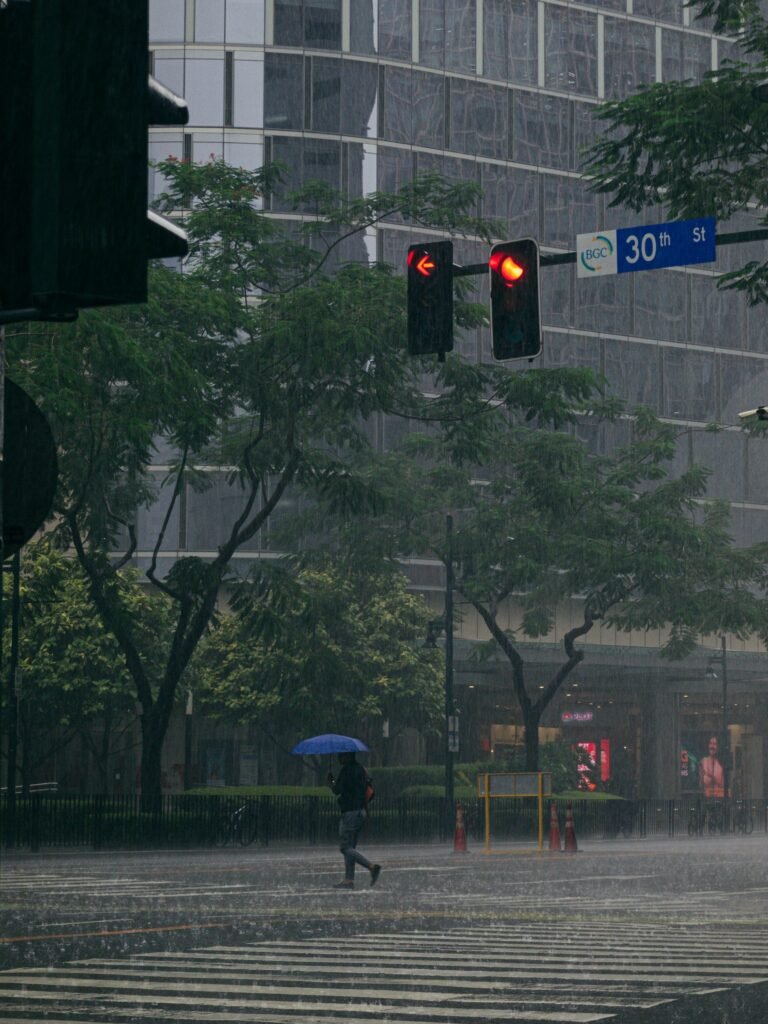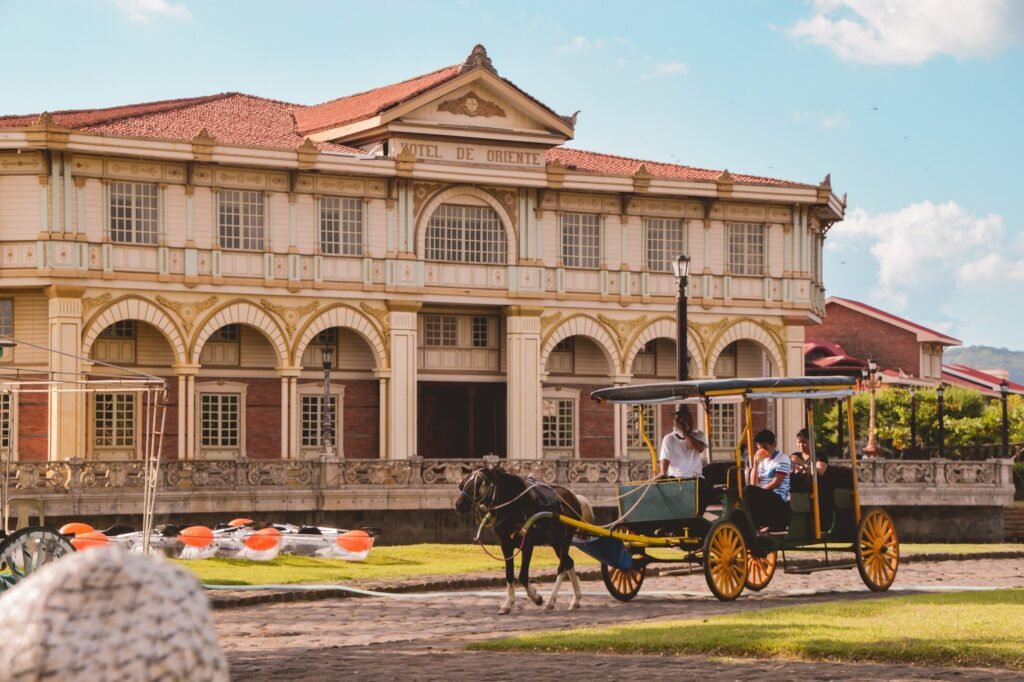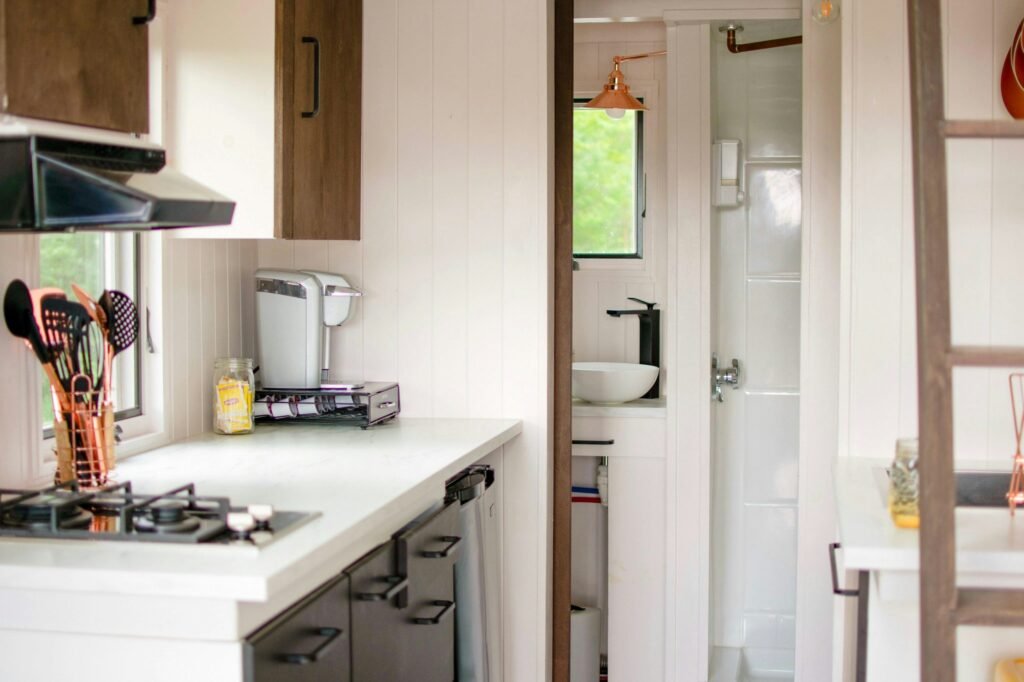Discover the potential of net-zero living in an urban landscape, touching upon energy efficiency, renewable energy capture, waste management, urban gardening, water conservation, and sustainable mobility.
Imagine every watt of electricity you use is neutralized by the energy you generate; every drop of water you consume is balanced by what you save or recycle. The reality of achieving net-zero living in the typically energy-hungry, concrete jungles may seem distant, but cities in the Philippines are brewing with sustainable innovations that lay a promising foundation.

PHOTO: @rgaleriacom on Unsplash
On Course for Net-Zero Urban Living: A Proactive Solution
In the realm of sustainability, ‘net zero‘ refers to a balanced equation between the amount of green energy you produce and the amount of energy you consume. Emerging from the cocoon of niche communities, the concept of net-zero urban living has catapulted into the mainstream consciousness in the Philippines — a clear indication of a growing public interest in sustainable lifestyles.
As interest in sustainable living grows, more people are wondering if it is actually feasible in cities. It’s a compelling inquiry — especially in the archipelago nation of the Philippines, where more than half of the population resides in high-energy urban spaces.
Energy Efficiency in Urban Homes: Adapting Design & Leveraging Technology
Energy-efficient homes are one of the basic elements of net-zero living, and while urban residences often face significant barriers due to lack of space and densely populated areas, creative solutions are emerging. Compact spaces are being reimagined, from natural light to strategically placed green spaces that facilitate cooling. These adaptations demonstrate the potential for sustainable living even in densely populated environments.
Simultaneously, the integration of smart home systems, like automatic light controls and energy-efficient appliances, helps manage and reduce energy use. The ‘Green Residences‘ project in Manila is an incredible structure prized for reducing its energy consumption by 30%— a great example of this smart approach.
Renewable Energy Integration: Seizing the Power of the Sun
The sun offers a bounty of renewable energy — a crucial component of net-zero living. Urban spaces punctuated by rooftops present an opportunity to install solar panels and harness this abundant resource.
Government policies play a role in incentivizing the transition to renewable energy, like the Renewable Energy Act of 2008 in the Philippines, which aims to expedite the propagation of renewable energy resources in the country.

PHOTO: Zbynek Burival on Unsplash
The Renewable Energy Act of 2008 plays a critical role in shaping the landscape of sustainable urban living in the Philippines by providing a framework for the accelerated adoption of renewable energy sources.
This legislation not only incentivizes the development and utilization of renewable energy through tax breaks, duty-free importation of equipment, and guaranteed pricing for generated power but also directly benefits urban residents by making renewable energy solutions more accessible and financially viable.
Urban dwellers can take advantage of net metering programs, which allow them to offset their electricity costs by feeding excess energy from rooftop solar panels back into the grid. Furthermore, the increased use of renewable energy contributes to cleaner air and a reduction in the urban heat island effect, enhancing the quality of life in densely populated areas.
By aligning government policy with the practical needs and capabilities of urban residents, the Renewable Energy Act of 2008 facilitates a more sustainable, energy-secure future for cities across the Philippines, proving that living Net-Zero in an urban setting is not only possible but also advantageous for individuals and communities alike.
Waste Management and Reduction: Reinventing the Urban Waste Approach
Likewise, building a net-zero city demands a significant reduction in waste generation, with recycling playing a frontrunner role. Municipalities empowering the residents to segregate and recycle their waste can markedly reduce the load on landfills.

PHOTO: Nareeta Martin on Unsplash
Cebu City’s ‘Zero Waste Program’ serves as a shining example in this respect. By identifying high waste-generating barangays (neighborhoods) and implementing a waste segregation system at the source, the program significantly reduced the volume of waste sent to landfills within a year of its inception.
Cebu City’s ‘Zero Waste Program’ is a solid proof to the power of community engagement in driving sustainable waste management, achieving significant landfill waste reduction by targeting high waste-producing barangays.
The initiative mandates households to segregate waste at the source into biodegradable, non-biodegradable, and recyclable materials, fostering a culture of environmental responsibility. Through the distribution of color-coded bins and continuous education campaigns, the program ingrains waste segregation into the daily routines of residents, transforming their perception of waste from mere refuse to a manageable, valuable resource.
To bolster community participation and economic incentives, the program facilitates the creation of materials recovery facilities (MRFs) in each barangay for efficient recyclable sorting and processing.
This strategy not only promotes environmental entrepreneurship but also ensures active community involvement in Cebu City’s zero-waste objectives. Regular workshops and training sessions empower residents with the knowledge and skills needed for effective waste management, showcasing the critical role of collective action in the pursuit of urban sustainability.
Cultivating Green Spaces and Urban Gardening: Breathing Life into the Concrete Jungle
In addition, urban gardening and green spaces can contribute to net-zero living by countering heat island effects, reducing energy consumption, and improving air quality. Moreover, the psychological benefits of connecting with nature in an urban setting shouldn’t be discounted.
Projects such as The Rainforest Adventure Experience (RAVE) in Pasig City help underscore this point. Beyond simply providing a recreational space, RAVE offers an urban farming school program that encourages city dwellers to learn the basics of urban agriculture, underscoring the movement towards ‘green’ city living.
Water Conservation and Management: The Blue Gold of Tomorrow
Water conservation is also an essential part of urban net-zero living that can be efficiently pursued through methods like rainwater harvesting and greywater recycling. These techniques, coupled with water-saving appliances and fixtures, can significantly reduce water consumption in city homes.
Sustainable Transportation & Mobility: Greener Miles Ahead
Simplifying the commute by boosting public transport accessibility and encouraging non-motorized modes of transport such as bicycling and walking is central to the shift towards net-zero living. The development of eco-friendly transportation infrastructure is key to facilitating this shift.
An ambitious project that supports this is the planned Unified Grand Central Station in Quezon City, which aims to streamline different modes of transportation into one central hub. By encouraging public transport usage, the city hopes to reduce carbon emissions and further its journey towards achieving net-zero living.
Overcoming Challenges and Barriers: A Road Littered with Obstacles
As enticing as the vision of net-zero cities may be, significant challenges exist – from affordable access to green technology, and space limitations in densely populated urban areas, to regulatory barriers. But as urban dwellers and leaders come together to face these challenges, from energy consumption to waste production, the goal of a sustainable and net-zero lifestyle becomes more achievable.
Net-Zero Lifestyle and the City
To redefine our urban environments and truly create cities that embody resilience and sustainability, we need not just dream about net-zero living – but actively pursue it. Your journey towards a sustainable lifestyle isn’t individual – it’s collective and universal.
We are building the first net-zero community in the Philippines! If you would like to check out our Net-Zero model house, you may contact us through here.
If you’re eager to delve deeper into net-zero living, we encourage you to explore another article that offers valuable insights. Check out: Green Skies Ahead: A Look At Urban Vertical Farms.
Resources:
-
United Nations. For a livable climate: Net-zero commitments must be backed by credible action. Retrieved from https://www.un.org/en/climatechange/net-zero-coalition
-
SMDC. Green Residences. Retrieved from https://smdc.com/properties/green-residences/
-
GOVPH. Republic Act No. 9513. Retrieved from https://www.officialgazette.gov.ph/2008/12/16/republic-act-no-9513/
-
Caecent No-ot Magsumbol. City Hall’s SP launches ‘zero waste’ campaign. Retrieved from https://qa.philstar.com/the-freeman/cebu-news/2023/04/06/2257299/city-halls-sp-launches-zero-waste-campaign
-
Krees de Guia. Green Roofs and Vertical Gardens: Reimagining Urban Housing in SEA. Retrieved from https://billionbricks.org/updates/green-roofs-and-vertical-gardens-reimagining-urban-housing-in-sea?rq=green%20space
-
Rave. Pasig City. Retrieved from http://rave.pasigcity.gov.ph/
-
Princess Catherine Pabellano. The Environmental Benefits of Living a Net Zero Lifestyle. Retrieved from https://billionbricks.org/updates/the-environmental-benefits-of-living-a-net-zero-lifestyle?rq=water%20conservation
-
James Clark. Unified Grand Central Station – Metro Manila. Retrieved from https://futuresoutheastasia.com/unified-grand-central-station/




